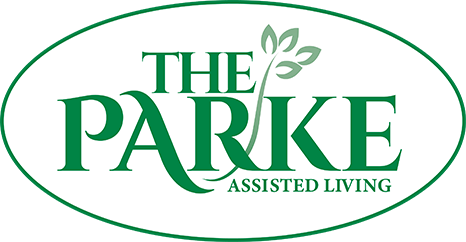As parents age, their needs vary. Mom may be in great shape, while dad needs help with activities of daily living such as dressing, grooming, bathing, or eating. And when mobility becomes restricted, an even greater need for assistance may bring decision time to the forefront for seniors and their adult children.
Transitions aren’t easy, particularly for seniors who are set in their preferences, their routine, their community, and current home. But transitions become necessary when various elements come into play, such as:
- One spouse’s safety could be at risk due to memory loss, dementia, and even more worrisome things like wandering the neighborhood.
- If the caregiving spouse needs a respite due to the constant and increasing physical, mental, or emotional needs of their spouse.
- If the spouse receiving care gets combative or refuses what is medically necessary for his or her safety and wellbeing.
- If the adult children pick up on cues that their parents are not living in a sanitary situation due to the physical or cognitive decline of at least one parent.
It’s one thing to see the home your parents once kept meticulously now deteriorate as they decline. There’s a simple fix for that: call a maintenance or repair company and hire them to do the necessary upkeep to the home. It’s a whole different thing when you visit your folks and find out your mom is totally exhausted from your dad’s seemingly never-ending needs, and now she has injured her back and can’t physically wait on him hand and foot anymore. With this type of situation, it’s vital you look into the options for assistance promptly, lest your mom injure herself even more, and you are faced with two parents in need of a lot of assistance.
There’s dignity in aging gracefully. And the more independence our parents enjoy, the greater their quality of life. But at some point, they may need consistent help with some of the six primary activities of daily living — eating, transferring/walking, toileting, dressing, bathing, and medication. Assisted living communities are designed to help with activities of daily living as needed. Cognition and memory loss can also be a factor, and seniors with dementia often need a specialized assisted living community where their safety needs are addressed and medical personnel trained in memory care help them enjoy the best possible quality of life.
What to do when dad and mom have different needs for senior care
Each family is different, and each needs to evaluate their best options and carefully consider the optimal solution for each of their parents. With different levels of care needed, parents may want to look at assisted living communities. If more care is needed than assisted living communities offer, a continuing care retirement community, offering different levels of service in one location, may be a better option. If dad needs to be in a nursing home, and mom only needs assisted living, and the family decides they should live in each of those locations respectively until their needs change, that may be a feasible option. Or, mom may be up to staying in her current home, or living with an adult child, while dad may need more assistance such as an assisted living community or nursing home.
These are tough family decisions, and there are a variety of things to consider regarding these choices:
- Budget
- Insurance coverage
- Medical counsel from a doctor or other medical staff
- Counsel from the admissions director of an assisted living community, nursing home, or continuing care retirement community
- Current physical, mental, or cognitive/memory care needs of each parent
- Parental preferences for their change of housing arrangements
- Planning for how to keep the family intact in spite of changes in proximity to each other
If the physical, mental, or emotional needs of mom and dad create the need for them to be in different locations, here are some ideas to help keep the family unity strong and everyone connected:
- Make a schedule—Ask each of your siblings and their spouses to pick a day of the week or two to visit your parents. Alternate which parent you and your family visit, and perhaps include getting transportation for the parent who isn’t living in assisted living community to the community itself so you can all be together. Coordinate schedules so your parents have family visitors regularly, rather than everyone coming all at once and then having a lull the rest of the month.
- Plan activities together—If mom is living in her home alone, she may really enjoy getting out and having some fun with the children or grandchildren. Find fun activities, plan ahead, and enjoy life together. Pick dad up from the assisted living community and recreate together.
- Take advantage of the fun right at your fingertips—Assisted living communities have paid activities staff who bring a variety of fun activities right to the doorstep of residents. Take a look at the activities calendar and plan ahead to join your parent onsite at the assisted living community to have some fun together and get to know their friends and community.
- Eat together—Families thrive when they gather around the table together. Find a way to eat together regularly. Smiles abound when families are together.
- Simply pick up some great carry-out food and bring it to your parent in the assisted living community.
- Join your parent in their community dining room for a delicious meal.
- Pick up both of your parents and go out to a restaurant together.
- Make a salad and grab a pizza, and have family over to your parent’s home.
Tulsa Assisted Living Community
If you’re looking for assisted living in a caring community, The Parke is a licensed assisted living facility in Tulsa that offers seniors a safe, caring community and a beautiful place to call home. The staff provides exceptional care to each resident. And, as an Oklahoma licensed facility, their high standards of excellence give families peace of mind. Schedule a tour at The Parke today.

